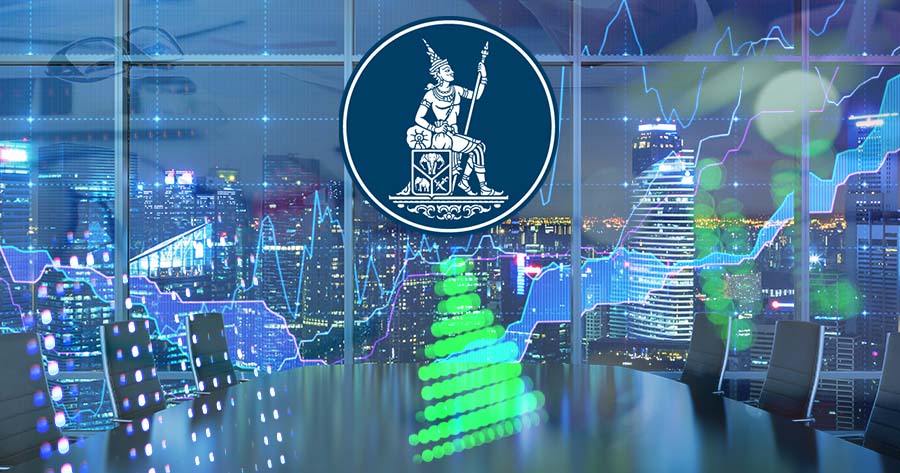A senior official from Thailand’s central bank expressed no concerns on the current inflation outlook as the bank is directing its monetary policy efforts towards maintaining financial stability and fostering economic growth, especially amid increasing uncertainties.
Bank of Thailand (BOT) Assistant Governor Sakkapop Panyanukul, in his first interview with international media on Wednesday, emphasized that the current low inflation level is not seen as a hindrance to the country’s economic recovery.
Sakkapop indicated that should the BOT shift the inflation target to a fixed 2% as suggested by the government, it could be unsuitable, as Thailand’s prices are primarily affected by external factors. Instead, he voiced support for the current 1%-3% target range to allow flexibility in policy decisions, enhancing the central bank’s credibility.
There have been differences between the central bank and the government over how to stimulate the Thai economy, which has struggled with modest growth over the past decade. Despite government pressure for further rate cuts to spur inflation, the BOT held its benchmark interest rate steady at 2.25% following an unexpected quarter-point cut in October.
The BOT projects consumer prices will hover around 1% for much of 2025, potentially dipping below the target range in the third quarter. Meanwhile, headline inflation reached the central bank’s target range of 1-3% in December after staying below 1% for most of 2024.
The central bank anticipates an average price increase of 1.1% in 2025, up from 0.4% in 2024, with GDP growth expected to rise to 2.9% this year from an estimated 2.7% the year before.
Detailed reports on last year’s economy are due in mid-February, with the year’s first interest rate meeting slated for February 26.
As global uncertainties, including the implications of anticipated U.S. tariff policies under President Donald Trump, loom large, the BOT emphasizes the importance of adaptable monetary policy.
Sakkapop mentioned that the bank would remain cautious with data interpretation and prioritize trend analysis while preparing for scenario-based assessments. The central bank plans to use interventions in foreign-currency markets and macroprudential strategies as necessary, while trying not to excessively rely on policy rate adjustments.
He also pointed out that Thailand’s interest rate of 2.25% is relatively low globally, asserting the importance of maintaining policy space to effectively tackle unforeseen economic challenges.





